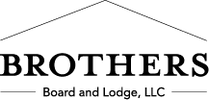Resident Bill of Rights and Services provided by Brothers Board and Lodge
You have the right to participate in social, religious, and community activities that do not interfere with the rights of other residents within the facility.
You have the right to reside and receive services in the facility with reasonable accommodations of your needs and preferences, except, when your health or safety or that of other residents would be endangered.
You have the right to receive services from an outside provider. You have the right to purchase goods or services not included in the per diem rate from a supplier of your choice unless otherwise provided by law.
You have the right to have a health care directive and to formulate an advanced directive.
You have the right to designate an unrelated person to have status of your next of kin with respect to making a health care decision.
If you are unconscious, comatose, or unable to communicate—the facility must make reasonable efforts to notify a family member or an individual you have designated. The family member has the right to participate in your treatment planning, as required by state law.
You have the right to refuse to follow the facility rules. If you refuse to follow the rules, you will be informed of the likely consequences of your decision. You have the right to discuss with staff members of Brothers Board and Lodge and your Case Manager.
You have the right to communicate with persons inside and outside of the facility during reasonable hours.
You have the right to refuse the services provided by Brothers Board and Lodge. The services include; providing food for three meals per day, a bed, and a dresser for your belongings. You have the right to bring in your own bedding and clothing. Other items allowed are indicated in the house rules which you sign upon admission.
You have the right to request certain food choices. A request does not mean automatic approval.
The facility must consult with you when there is an accident involving injury to you, a significant change in your physical, mental, or psychological status, or a decision to transfer you or discharge you from the facility. The facility must also contact your Case Manager, Probation officer, and/or Emergency Contact.
You have the right to participate in social, religious, and community activities that do not interfere with the rights of other residents within the facility.
You have the right to reside and receive services in the facility with reasonable accommodations of your needs and preferences, except, when your health or safety or that of other residents would be endangered.
You have the right to receive services from an outside provider. You have the right to purchase goods or services not included in the per diem rate from a supplier of your choice unless otherwise provided by law.
You have the right to have a health care directive and to formulate an advanced directive.
You have the right to designate an unrelated person to have status of your next of kin with respect to making a health care decision.
If you are unconscious, comatose, or unable to communicate—the facility must make reasonable efforts to notify a family member or an individual you have designated. The family member has the right to participate in your treatment planning, as required by state law.
You have the right to refuse to follow the facility rules. If you refuse to follow the rules, you will be informed of the likely consequences of your decision. You have the right to discuss with staff members of Brothers Board and Lodge and your Case Manager.
You have the right to communicate with persons inside and outside of the facility during reasonable hours.
You have the right to refuse the services provided by Brothers Board and Lodge. The services include; providing food for three meals per day, a bed, and a dresser for your belongings. You have the right to bring in your own bedding and clothing. Other items allowed are indicated in the house rules which you sign upon admission.
You have the right to request certain food choices. A request does not mean automatic approval.
The facility must consult with you when there is an accident involving injury to you, a significant change in your physical, mental, or psychological status, or a decision to transfer you or discharge you from the facility. The facility must also contact your Case Manager, Probation officer, and/or Emergency Contact.
Proudly powered by Weebly
